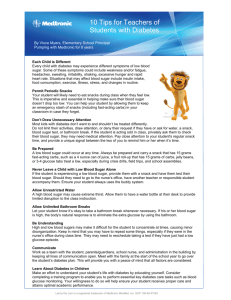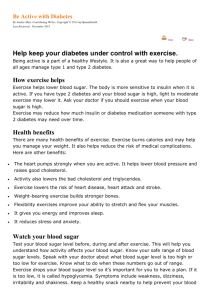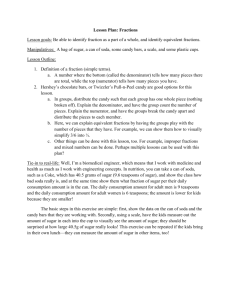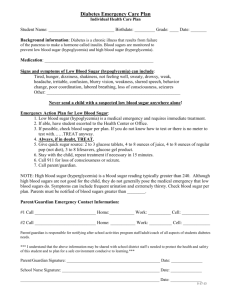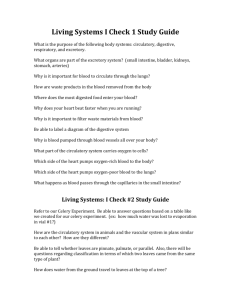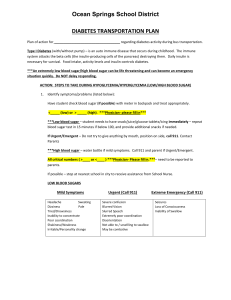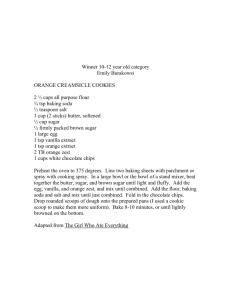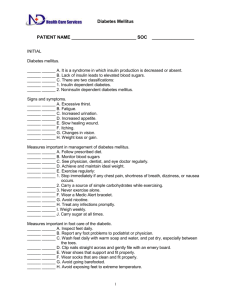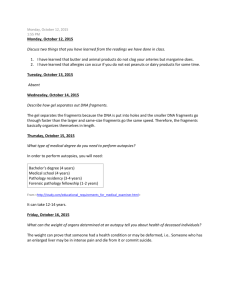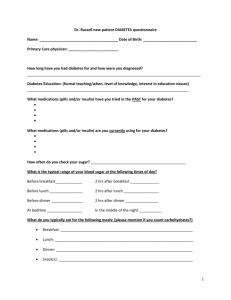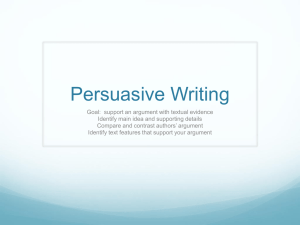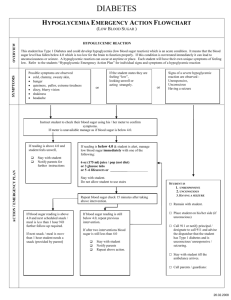20121129 - Argumentative Essay Example - Pre
advertisement
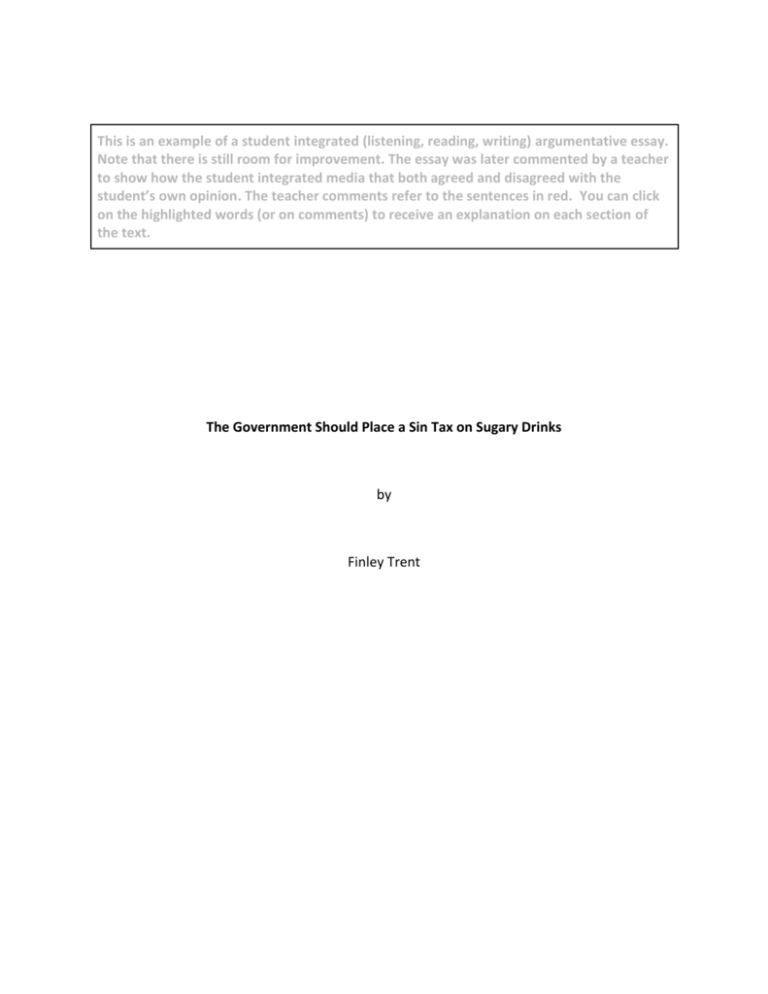
This is an example of a student integrated (listening, reading, writing) argumentative essay. Note that there is still room for improvement. The essay was later commented by a teacher to show how the student integrated media that both agreed and disagreed with the student’s own opinion. The teacher comments refer to the sentences in red. You can click on the highlighted words (or on comments) to receive an explanation on each section of the text. The Government Should Place a Sin Tax on Sugary Drinks by Finley Trent The Government Should Place a Sin Tax on Sugary Drinks By Finley Trent Allen Schaffer, the President of the Canadian Diabetes Association stated that “sugar is now, more than ever, a health crisis of phenomenal proportions” (Harper). Yet, there are reputable people that feel this is hyperbole. Goodacre considers that, in the right quantities, the human body requires sugar in order to provide higher cognitive function. Similar declarations of war on undesirable products have been made: alcohol and tobacco to name but a few. Historically, governments have successfully reduced the consumption of these products through taxation. For a number of reasons, the Government of Canada must impose a special tax on soft drinks. Not everyone is in a position to make rational decisions with regard to this topic. First, children often consume soda despite advice they have been given to the contrary. For example, in a radio interview with Lombrozo, listeners learned that “cognitive development continues well past the teenage years and this lack of development often fails to curb desire and impulse functions”. In other words, even when a teenager knows that soda is bad for their health, they will still consume it for the pleasure or energy that it produces. Secondly, some people simply cannot help themselves but to drink soda. While some people might argue that these types of people are just lazy and lack self-control (Sarler), I would point out that “a small percentage of people may truly become addicted [to sugar], experiencing the type of loss of control around food that is characteristic of addiction” (Rettner). To clarify, these people crave sugar products to the point of self-destruction. Taxing undesirable products in the past has been an effective means of reducing the consumption of unhealthy products. [Body paragraph 2 would continue, here…]. [Body paragraph 3 would appear here, etc.]. In sum, the health of many Canadians would improve if the Government of Canada imposed a special tax on beverages that are high in sugar content. Although some people believe that the government should not intervene on nutrition issues, there are a number of reasons why a sin tax on beverages should be imposed. These reasons run from people’s inability to resist temptation despite rational thought, success with in the reduction of consumption of other similar toxic products in the past, and a decrease in Canada’s health care costs. Works Cited Goodacre, Sonia, Chrissy Collins, and Carolyn Slatter. Health and Human Development. Cambridge: Cambridge UP, 2013. Print. Harper, William, MD, Maureen Clement, MD, and Ronald Goldenberg, MD. "Pharmacologic Management of Type 2 Diabetes." Clinical Practice Guidelines. The Canadian Diabetes Association, 11 Mar. 2013. Web. 29 Sept. 2015. <http://guidelines.diabetes.ca/browse/Chapter13>. Lombrozo, Tania. "Is Having A Child A Rational Decision?" Cosmos & Culture. NPR. KPCC, Southern California, California, 11 Mar. 2013. NPR. Web. 29 Sept. 2015. <http://www.npr.org/sections/13.7/2013/03/11/173977133/is-having-a-child-a-rationaldecision>. Rettner, Rachael. "Is Sugar a Drug? Addiction Explained." LiveScience. TechMedia Network, 28 Oct. 2013. Web. 29 Sept. 2015. <http://www.livescience.com/40749-addiction-drugssugar.html>. Sarler, Carol. "Can't Lose Weight? How Pathetic. You Just Lack Willpower." UK Daily Mail. Associated Newspapers, 03 Apr. 2014. Web. 29 Sept. 2015. <http://www.dailymail.co.uk/femail/article-2595628/Can-t-lose-weight-How-pathetic-Youjust-lack-willpower.html>.
